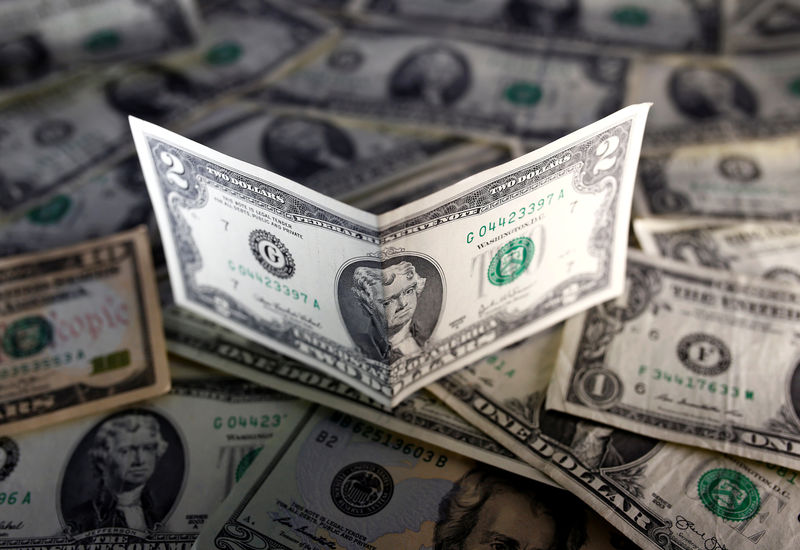Investing.com - The dollar rose to its highest level since April 2003 against a basket of the other major currencies on Friday amid a rally driven by the U.S. presidential election and expectations that the Federal Reserve will raise interest rates next month.
The U.S. dollar index, which measures the greenback’s strength against a trade-weighted basket of six major currencies, was at 101.41 late Friday, its highest close since April 2003.
The index has risen around 3.0% so far this month following the outcome of the U.S. presidential election, tracking rising U.S. Treasury yields amid expectations that President-elect Donald Trump’s plans to ramp up fiscal spending and cut taxes will spur economic growth and inflation.
Faster growth would spark inflation, which in turn would prompt the Fed to tighten monetary policy a faster rate than had previously been expected.
The dollar rally has also been boosted by bets that the U.S. central bank will almost certainly raise interest rates next month.
Fed Chair Janet Yellen on Thursday reiterated that a rate hike “could well become appropriate relatively soon.”
Investors have assigned a 95.4% chance of a rate hike at the Fed's December meeting; according to federal funds futures tracked Investing.com's Fed Rate Monitor Tool.
Expectations for higher interest rates typically boost the dollar by making it more attractive to yield seeking investors.
The euro fell to 11-month lows against the dollar on Friday, with EUR/USD at 1.0588 in late trade. For the week the pair was down 2.16%.
The dollar rose to five-and-a-half month highs against the yen, with USD/JPY up 0.71% at 110.89 in late trade.
The traditional safe haven Swiss franc fell to nine-month lows against the greenback, with USD/CHF hitting highs of 1.0122, before pulling back to 1.0099 late Friday.
Sterling slid to two-week lows, with GBP/USD down 0.61% at 1.2344.
In the week ahead, trade volumes are expected to remain light around Thursday's Thanksgiving holiday and Friday's shortened trading session.
The U.S. is set to release data on durable goods orders, jobless claims and new home sales ahead of the holiday, on Wednesday.
Survey data on euro zone private sector business activity, also due on Wednesday will be closely watched for fresh indications on the health of the single currency bloc’s economy.
Ahead of the coming week, Investing.com has compiled a list of these and other significant events likely to affect the markets.
Monday, November 21
Canada is to publish data on wholesale sales.
European Central Bank President Mario Draghi is to testify about the bank's Annual Report before the European Parliament, in Strasbourg.
Tuesday, November 22
New Zealand is to publish data on retail sales.
The UK is to report on public sector borrowing.
Canada is to release data on retail sales.
The U.S. is to produce a report on existing home sales.
Wednesday, November 23
Financial markets in Japan will remain closed for a holiday.
New Zealand is to report on producer price inflation.
In the UK, Chancellor Philip Hammond will present his autumn budget statement to parliament.
The euro zone is to release survey data on private sector activity.
The U.S. is to release data on durable goods orders, initial jobless claims, new home sales and a revised report on consumer sentiment.
Later in the day, the Fed is to publish the minutes of its November meeting.
Thursday, November 24
The Ifo Institute is to release data on German business climate.
Financial markets in the U.S. are to remain closed for the Thanksgiving holiday.
Friday, November 25
Japan is to release data on consumer price inflation.
The U.K. is to round up the week with revised data on third quarter growth.
